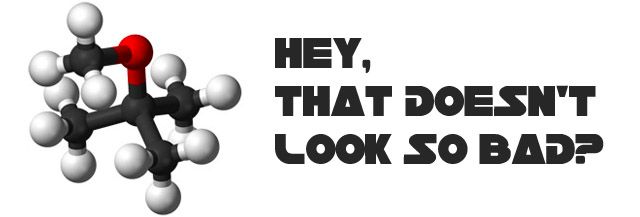Methyl tertiary butyl ether, more commonly known as MTBE, has been a hot topic in recent years regarding the subject of water contamination. It is primarily used as an agent in gasoline to reduce the amount of carbon monoxide and ozone levels found in car exhaust.
While it has been shown to effectively reduce these compounds, both of which are harmful to the environment, MTBE has also been found in our water supply. Is this something that we should be concerned about?
In terms of health concerns, there is not a lot of conclusive evidence that MTBE is harmful in the small doses found in tap water. That said, it also hasn’t been studied extensively. We do know a few things for certain though. One is that in small doses, MTBE in a gaseous state causes nose and throat irritation. If it is ingested, MTBE, again in small quantities, can also cause diarrhea and problems with the digestive tract. This is to say nothing of what happens if high amounts are consumed.
What’s more, MTBE effects the taste and smell of water in a noticeable way. In fact, you can smell MTBE at doses of 15 parts per billion. Taste and smell are obviously less of a concern than the more severe health risks that are posed by many other water contaminants, but as this a site about water purification, these components are important as well.
What’s perhaps most disturbing about MTBE in tap water is that there haven’t been extensive studies on the health consequences of this contaminant. Most of the studies have been animal studies that involved short-term exposure. We do not know what long-term health effects are and yet the EPA allows a certain amount of MTBE in the water because they believe there is enough evidence to suggest that are bodies can effectively deal with it. But we don’t know for certain if that is the case.
Unfortunately, one of our favorite purification products, the PUR DS 1800z, does not effectively filter out MTBE. There are, however, a number of whole house filtration systems that do remove it. We would recommend visiting the website of NSF International as they offer a number of impartial reviews of products that they have tested extensively.
To find out if MTBE is in your water and in what quantities, you can first approach your local municipal water company for information. Most states and municipalities are now collecting information on this contaminant. You can also consult the EPA as well as private testing facilities. For more on this, please see our article on how to test your tap water.
If you have any thoughts on MTBE and this ongoing debate, please share them in the comments below.







{ 0 comments… add one }